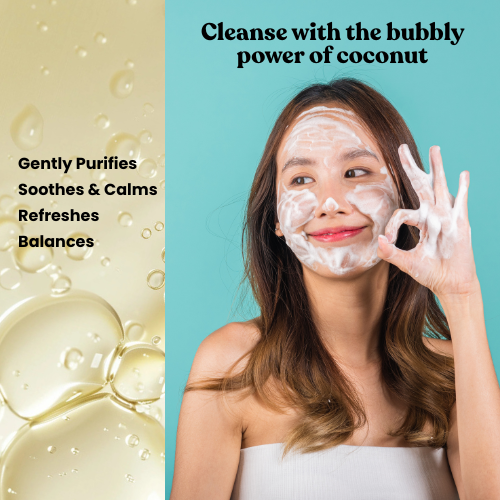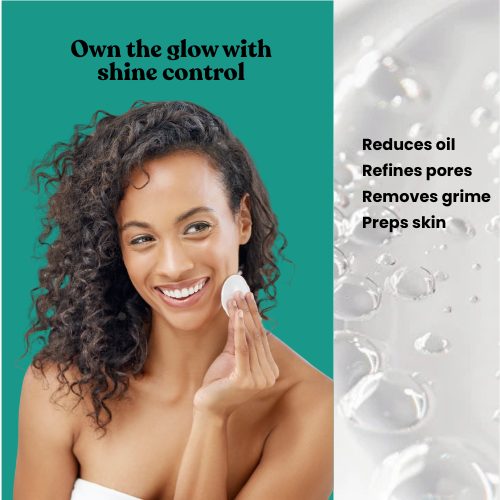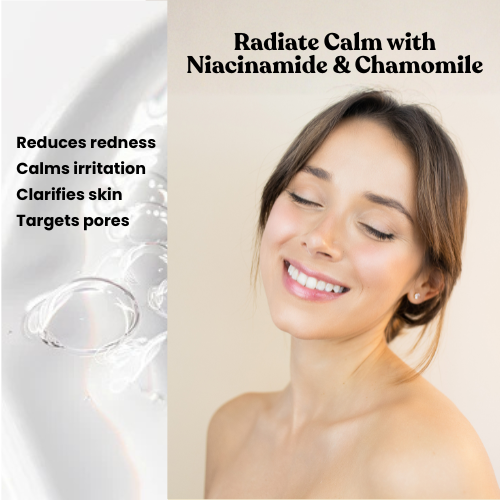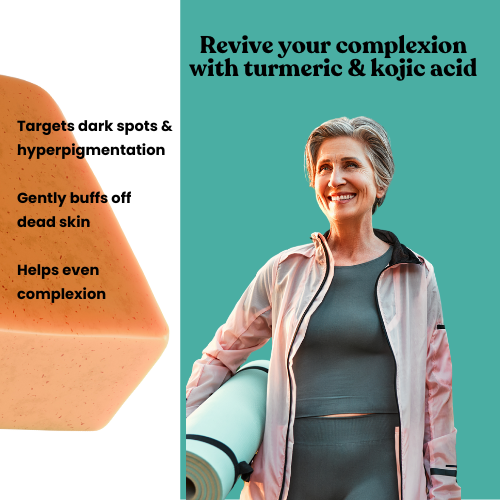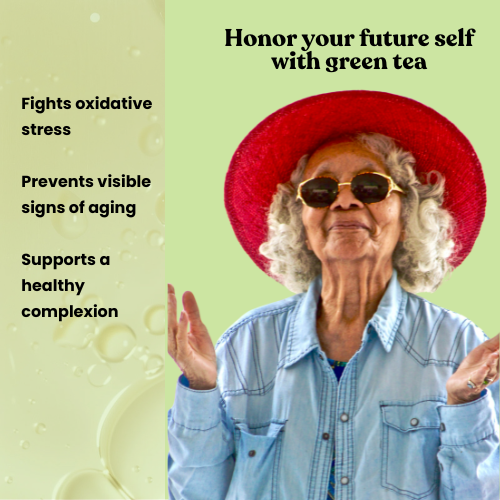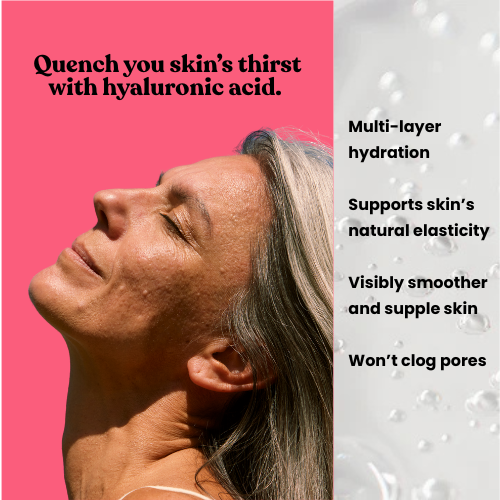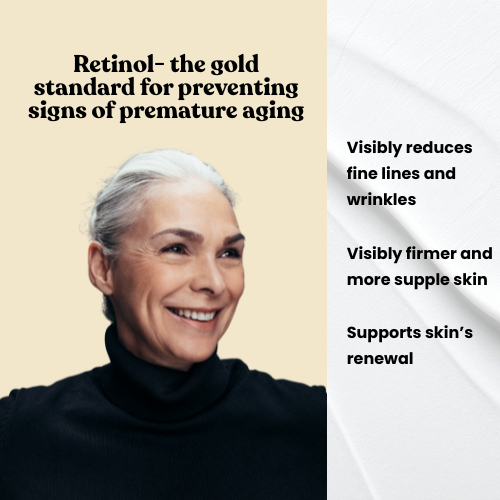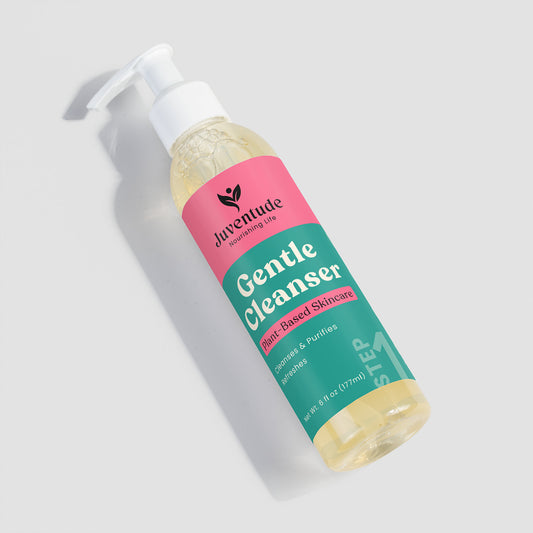-
Gentle Cleanser
Regular price $24.99 USDRegular price Sale price $24.99 USDUnit price per -
Shine Control Toner
Regular price $31.00 USDRegular price Sale price $31.00 USDUnit price per -
Calming Radiance Serum
Regular price $23.99 USDRegular price Sale price $23.99 USDUnit price per -
Turmeric Therapy Bar
Regular price $14.99 USDRegular price Sale price $14.99 USDUnit price per -
Green Tea Shield Serum
Regular price $23.99 USDRegular price Sale price $23.99 USDUnit price per -
Deep Hydration Serum
Regular price $34.99 USDRegular price Sale price $34.99 USDUnit price per -
Nighttime Retinol Renewal Cream for Normal Skin
Regular price $39.99 USDRegular price Sale price $39.99 USDUnit price per -
Anti-Aging Routine for Oily Skin
Regular price $179.99 USDRegular price Sale price $179.99 USDUnit price per -
Daily Nourishment Routine - Acne Prone Teens
Regular price $98.99 USDRegular price Sale price $98.99 USDUnit price per
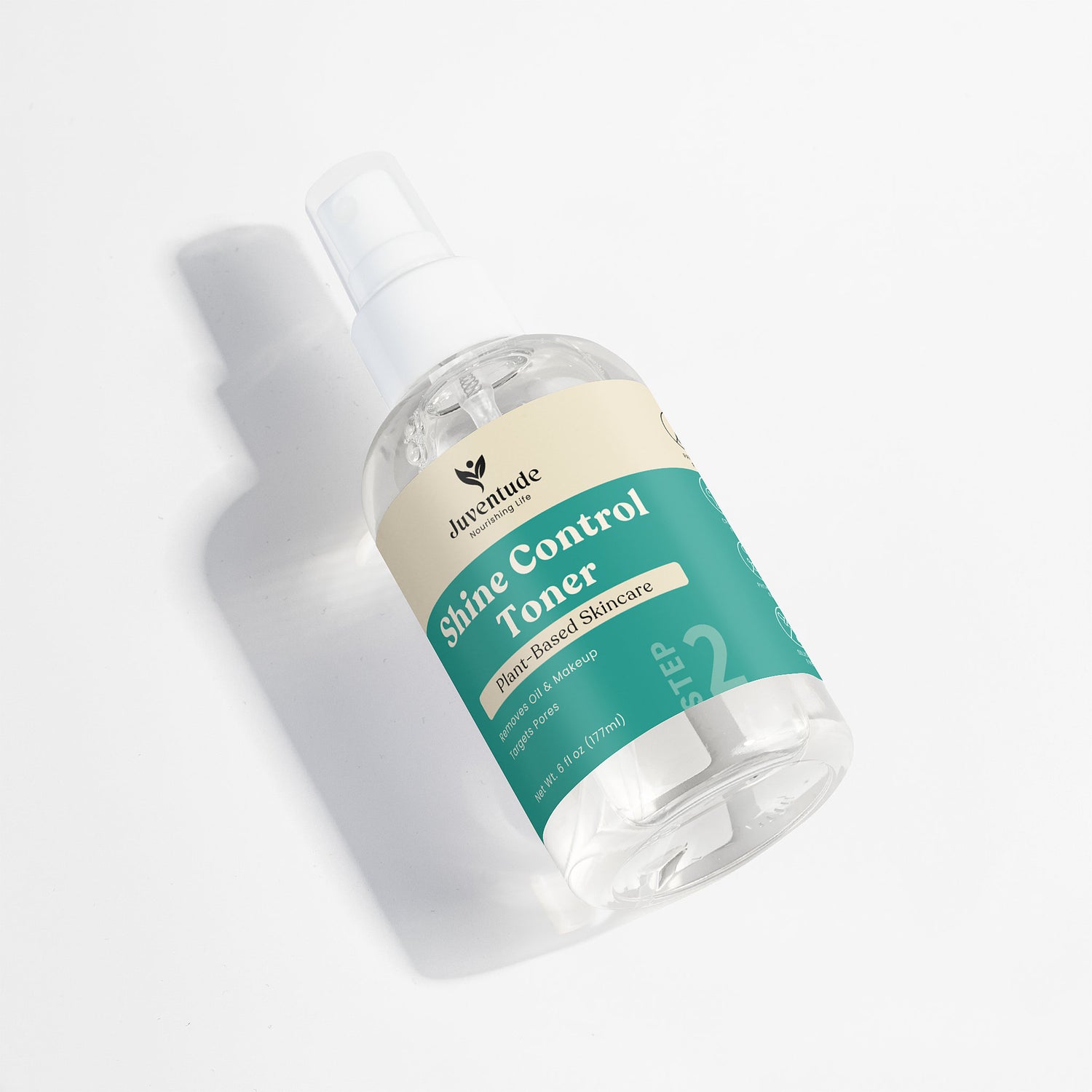
Oily Skin?
If you haven't done so already, add a toner to your daily routine specifically designed to get sebum and shine under control.
If you are looking for something more complete, try our curated routines for oily skin.
Take Control: A Balanced Guide to Managing Oily Skin
Oily skin requires specialized care. If your skin often feels shiny, greasy, or prone to breakouts, you’re not alone. Excess oil, enlarged pores, and persistent blemishes can be everyday frustrations, but with the right approach, you can restore balance and clarity to your complexion. The path to healthy, vibrant skin starts with understanding the root causes of oiliness and choosing products that support rather than strip your skin. We're here to help you build a routine that controls shine and promotes a clear, confident look.
Indicators of Oily Skin
Recognizing oily skin begins with noticing key signs such as a persistent shine (especially in the T-zone), enlarged pores, and frequent blackheads or pimples. Your skin may feel greasy shortly after washing, makeup may not stay in place, or you might notice clogged pores and blemishes more often. These characteristics can affect your face, back, chest, or shoulders, making it important to monitor how your skin responds throughout the day and in different environments.
Understanding Your Oily Skin
Oily skin is usually caused by overactive sebaceous glands that produce more sebum than your skin needs. This excess oil can lead to clogged pores and acne, but it also brings benefits: naturally well-moisturized skin may show signs of aging more slowly. Still, the main goal for those with oily skin is to balance oil production without causing irritation or dehydration.
The Skin Barrier: Your First Line of Defense
The skin barrier protects your face from pollution, bacteria, and harsh elements. For oily skin, maintaining a healthy barrier is crucial: stripping away too much oil with harsh products can damage the barrier, triggering even more oil production as your skin tries to protect itself. A steady routine using non-comedogenic, gentle formulas helps keep your barrier strong, lowers the risk of breakouts, and keeps excess shine in check.
Common triggers for oily skin include:
- Harsh Ingredients: Overly drying alcohols, astringents, and abrasive scrubs can signal your skin to ramp up oil production.
- Environmental Factors: Hot and humid weather increases sebum output and sweat, making the skin feel greasier.
- Hormonal Changes: Puberty, menstrual cycles, or stress can all affect sebum levels.
- Diet and Lifestyle: High sugar, dairy, or processed foods may alter oil production and trigger breakouts.
Why Cleansing is Essential for Oily Skin
Cleansing is critical for oily skin, helping to clear away excess oil, dirt, and leftover products that can clog pores and cause blemishes. The key is to use a gentle, foaming cleanser that removes impurities without stripping the skin or leaving it dry and tight—avoiding that rebound effect that triggers more oil. Cleansing twice daily helps control shine, keeps pores clear, and sets the stage for the rest of your routine.
Why Should People with Oily Skin Use a Toner with Witch Hazel?
A toner with witch hazel helps with oily skin. Witch hazel is a natural astringent known for its ability to reduce excess oil production, minimize the appearance of pores, and soothe inflammation. When used after cleansing, a witch hazel-based toner helps to remove any lingering impurities, such as dirt or cleanser residue, while prepping the skin for better absorption of serums and moisturizers. Additionally, its anti-inflammatory and antimicrobial properties make it effective for calming irritation and preventing breakouts, resulting in a balanced and refreshed complexion.
Why Use a Niacinamide Serum for Oily Skin
Niacinamide (vitamin B3) is a game-changing ingredient for oily skin. This lightweight serum regulates sebum production, minimizes the appearance of pores, and strengthens the skin barrier—all without causing dryness or irritation. Niacinamide is also known for its anti-inflammatory and calming properties, which can help reduce the look of active breakouts and redness. It balances oil, smooths texture, fades dark spots, and supports clear, healthy-looking skin. Apply niacinamide serum after cleansing to take full advantage of its benefits.
Why Should People with Oily Skin Use a Green Tea Serum?
Green tea serum is a powerhouse ingredient for individuals with oily skin due to its natural astringent and antioxidant properties. Rich in polyphenols, green tea helps regulate excess sebum production, keeping shine under control without stripping the skin of its essential moisture. Its anti-inflammatory compounds soothe redness and irritation often associated with oily and acne-prone skin, promoting a calmer complexion. Additionally, green tea is packed with antioxidants that protect against environmental stressors, reducing the chances of clogged pores and blemishes. Incorporating a green tea serum into your skincare routine can help you achieve a balanced, refreshed, and healthy-looking complexion.
Why Hydration Serums with Hyaluronic Acid Are Good for Oily Skin
Oily skin needs moisture just as much as any other skin type, but it’s important to choose the right kind. Hydration serums with hyaluronic acid offer lightweight, oil-free hydration that won’t clog pores or leave your complexion feeling greasy. Hyaluronic acid is able to attract and hold water in the skin, boosting hydration levels without adding extra oil. This helps keep your skin balanced—when your skin is properly hydrated, it’s less likely to overproduce oil to compensate for dryness.
These serums can also help refine and smooth the appearance of skin texture, minimizing the look of enlarged pores often experienced by those with oily skin. Since they absorb quickly and leave no residue, hydrating serums layer easily under other products. The end result is skin that feels fresh, balanced, and comfortable, with a healthier, clearer-looking appearance.
Why Retinol is Good for Oily Skin
Retinol is a powerhouse ingredient for those with oily skin. Its primary benefit lies in its ability to help regulate sebum production, which keeps excess oil in check and minimizes the likelihood of clogged pores. Regular use of retinol promotes faster cell turnover, helping to prevent buildup that can lead to blemishes or blackheads. By keeping pores clear and encouraging the shedding of dead skin cells, retinol not only reduces breakouts but also helps improve overall skin texture, leaving your complexion looking smoother and more refined. With time, you may notice fewer acne flare-ups, smaller-looking pores, and a more even, radiant appearance.
Turmeric & Kojic Acid: Superstar Ingredients for Oily Skin
Turmeric and kojic acid are standout ingredients when it comes to caring for oily skin. Turmeric is well-known for its powerful anti-inflammatory and antioxidant properties, which help calm irritation and reduce redness that can accompany excess oil. It also helps balance sebum production, so your skin stays less greasy throughout the day.
Kojic acid, on the other hand, is celebrated for its skin-brightening effects. It helps fade dark spots and uneven tone that can develop after breakouts, giving your complexion a clearer, more radiant look. Like turmeric, kojic acid is gentle and works to even out your skin without adding heaviness or clogging pores.
When used together in a skincare routine, turmeric and kojic acid address key oily skin concerns—helping to control shine, brighten dullness, and keep inflammation at bay.
Practical Tips to Manage and Balance Oily Skin
Caring for oily skin is about building consistent, oil-balancing routines. Adopt these practical habits to keep your complexion clear, shine-free, and comfortable:
1. Blotting Papers and Mattifying Products
- Carry oil-absorbing blotting papers to quickly remove shine during the day without disturbing makeup. Use mattifying primers or powders to keep oil in check.
2. Sleep on Clean, Breathable Pillowcases
- Change your pillowcase regularly and use breathable materials to reduce oil and bacteria transfer that can cause breakouts.
3. Hydrate from Within
- Drink plenty of water to maintain healthy skin balance, as dehydration can actually prompt your skin to produce more oil.
4. Avoid Overwashing
- Cleansing too often or with harsh soaps can strip your skin and lead to increased oiliness. Stick to washing twice per day with a gentle cleanser.
5. Use a Humidifier Wisely
- While dry indoor air can irritate skin, too much humidity may worsen oiliness. Adjust your environment for comfortable moisture levels.
6. Patch Test New Products
- Always patch test to prevent breakouts or irritation before applying new skincare items to your whole face.
7. Choose Non-Comedogenic Products
- Select skincare and makeup labeled “non-comedogenic” to avoid clogging pores and worsening acne.
8. Wear Lightweight, Breathable Fabrics
- Especially if body acne is a concern, stick to breathable clothes and shower after sweating.
9. Limit Sugar and Dairy
- Diets high in sugar and dairy may contribute to excess oil and breakouts—opt for a balanced diet rich in vegetables and healthy fats.
10. Incorporate Skin-Friendly Nutrients
- Foods high in antioxidants and omega-3s can support oil balance and a healthier complexion.
11. Don’t Over-Exfoliate
- Exfoliate gently once or twice a week with salicylic acid or clay masks—but avoid scrubbing or peeling too frequently.
12. Manage Stress
- Stress can trigger oil production and breakouts. Use relaxation techniques like deep breathing, yoga, or mindfulness for balance.
These DIY tips can help people with oily skin maintain a healthy, balanced, and clear complexion.
Know the Ingredients
Being ingredient-savvy makes all the difference for oily skin. Choose formulations that help balance oil without blocking pores or causing new breakouts.
Ingredients to Avoid:
- Comedogenic Oils: Such as coconut oil and certain heavy butters can clog pores on oily skin.
- Alcohol-Heavy Products: Strong alcohols can over-dry and trigger more oil production.
- Heavy Emollients: Ingredients like petrolatum, lanolin, and mineral oil are often too occlusive.
- Strong Fragrances: Artificial scents may irritate the skin and exacerbate oiliness or breakouts.
Care for Your Oily Skin
Ready to give your skin the gentle, nurturing care it deserves? Explore safe, effective solutions designed specifically to balance, clarify, and support oily skin.


